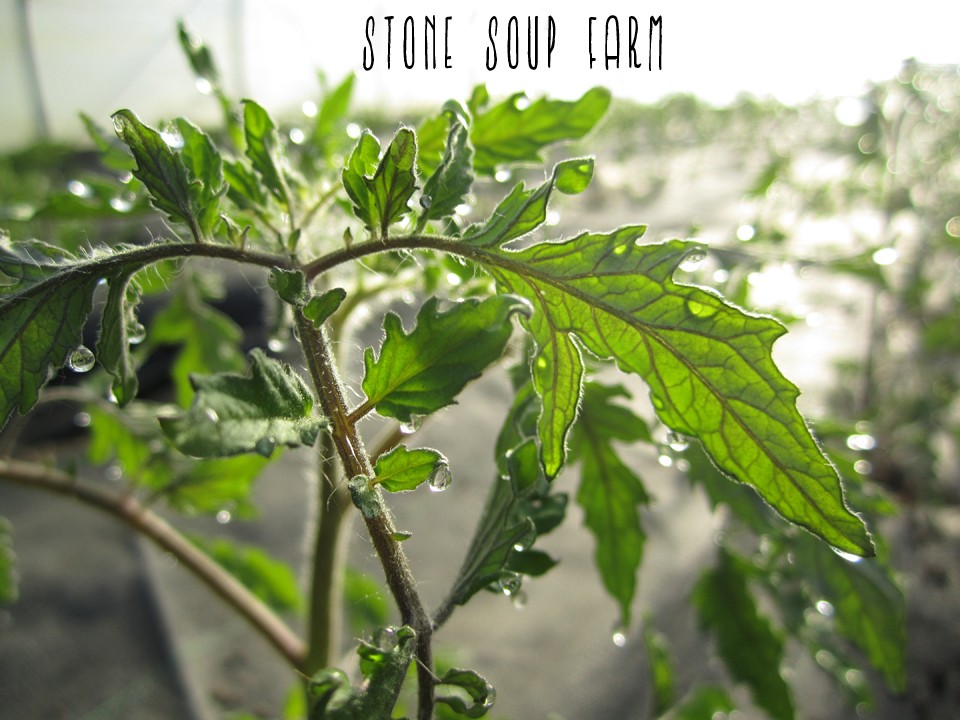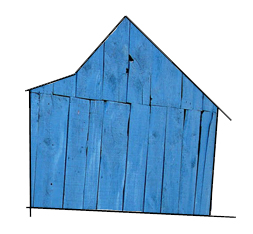FAQ
1. I can’t pick up my CSA share this week. What do I do?
2. I missed my CSA share this week. What should I do?
3. You say you are “Chemical Fee” but you never say organic. Does this mean you are not organic?
4. What’s the deal with the Low Income Shares? Does paying more give me any advantage?
6. Do you use tractors or other petroleum burning equipment on your farm? Have you tried biodiesel?
7. Why do you need all of my information? Am I gonna get junk mail or spam email?
8. How do I know if I sent in my form in time to get a share?
9. When do our shares start? Why can’t you give a certain date yet? What about flower shares?
10. Why are some weeks better than others?
Q: I can’t pick up my CSA share this week! What should I do?
A: If you can’t pick up for whatever reason, you can always send a friend to pick up your share for you. If you’re going to be back soon, maybe offer the friend a tomato or two for their efforts. If not, consider just donating it to them, it’s a nice gesture and a good way to spread the word about CSA. Your friend only needs to let the site attendant know who they are picking up for, and the attendant will help them through the process.
Q: I missed my CSA share this week! What should I do?
A: Sorry, but we cannot offer refunds or swaps for shares not picked up. If you know you can’t make it, see the above question about how to have a friend get it for you.
You can take comfort that we do our best to donate all produce that is left over at the end of each share. We currently work with Food For Free, Urban League Springfield, and Amherst Survival Center to make sure as much unused produce as possible reaches good hands.
Q: You say you are “chemical free” but you never say organic. Does this mean you’re not organic?
A: “Organic” is a loaded word these days, and the meaning of it has been diluted over time. We like to call ourselves “beyond organic” because we both meet all organic standards, AND we also refuse to use many certified organic products that are known to be hazardous to health and environment.
“Organic” is a word currently regulated and controlled by the USDA. In order for any product to be labeled organic one must 1.) meet all organic guidelines outlined in USDA’s National Organic Program and then 2.) Utilize a certifying agency to ensure compliance. The certifying agencies are private and are not funded by the government, which means they must charge a lot to cover their costs. Just to be able to use the word “organic”, Stone Soup would need to pay the accrediting agency nearly $2,000 per year, an expense that we would be passed on to our customers. To keep costs down we simply rely on the trust with our customers and CSA members, and have an open door policy – anyone is welcome to come here and see if they approve of our methods! Our farm is very transparent and open to all.
Q: What’s the deal with the Low Income Shares? Does paying more give me any advantage?
A: Stone Soup is making an effort to be accessible to people of different economic backgrounds. For this reason we have offered our shares with either a low income discount or donation. This is totally a honor system, and we do not define low income for our members, we ask that each member use their judgement. If you are tight on cash, but still feel strongly about eating local healthy food, then feel free to sign up with a discount. If you have a very comfortable income and would like to be a part of helping out our community, feel free to give a donation. Everyone else in the middle – just feel free to skip it.
Any extra money donated at the time of the shares starting, that was not used in low income shares, will be ported directly to our Elder Share program.
Q: Why do full shares often get items that half shares miss out on? Why can’t half shares simply be half of a full share?
A: It is a good question that requires a little bit of background:
Most items we give in our CSA are distributed by weight, which makes it easy to give full share quantities and smaller half share quantities. But some items are not given out by weight, and these create the problem.
Because of farm regulations, we are not allowed to “process” any of the food. Processing includes cutting, peeling, halving, or any other modification to the food. Basically, we’re only allowed to harvest the produce and wash it in water.
This means we are not allowed to give out things like half a cabbage, we can only give out whole heads. To give out 1 head to half shares means we should give 2 heads to full shares, but that is too much. So, for items that are not distributed by weight, such as cabbage, eggplants, or melons, we try to give one to everyone. This creates a problem when trying to make the shares fair (i.e. full shares are twice as valuable as halves). For every item that both half shares and full shares receive equally, there must be another item that only full shares get to offset this, which means we must supplement the full shares with some items that half shares will not receive.
Q: Do you use tractors or other petroleum burning equipment on your farm? Have you tried biodiesel?
A: At this time we do use plastics and some gas and diesel, and are working our way towards an ever increasing percentage of renewables. We have taken large steps to reduce our fuel use and environmental impact.
- We use biodiesel/waste vegetable oil whenever possible. Both have drawbacks, such as gelling in cool weather, and dissolving rubber parts in the tractor’s engine. We therefore use a blend, that is more biodiesel in the summer and more petroleum diesel in the cooler months.
- We have designed methods and equipment that drastically reduce the amount of time and fuel needed from a tractor and replaced it with efficient hand labor. Compared with other farms of comparable size we use much less mechanized methods.
- Greenhouses require a heating source in the spring to keep from freezing at night. We have built an in-ground greenhouse here to use in the spring, because it draws heat naturally from the ground and does not require burning fuel to keep from freezing.
- We have used biodegradable plastics in our operations to keep trash out of landfills.
- The chickens are being set up to play an ecologically important role on the farm, including following crops with grazing to use their manure for fertility and reduce the amount of feed they need.
Q: Why do you need all my information? Am I gonna get junk mail or spam email?
A: You bet. No, just kidding. We use email as our primary communication tool, but ask for phone and postal address just in case someone isn’t responding over email. Members don’t get calls or mail unless they are unresponsive over email.
We don’t sell or give away your information for any reason. Unless your kids won’t eat their vegetables. Then we alert the Veggie Police. Just pray you never have to deal with them.
Q: How do I know if I sent in my form in time to get a share?
A: You’ll get a confirmation email as soon as you’re in our system. Make sure to read this and check to see it has the correct information. If anything is off please reply with the correction.
If its been more than two weeks and you haven’t heard back, the most common mishap is that some people’s spam filter blocks the farm’s emails. Make sure stonesoupfarm@gmail.com is unblocked, or search your spam mail. You can always contact the farm and ask what’s up as well.
Q: When do our shares start? Why can’t you give a certain date yet? What about flower shares?
A: Because of the uncertainties of weather, we can never be sure exactly when crops will be ready. We aim to get out first shares in the second week of June, but if we have a cold spring then the crops will grow slower and we might need to start a week later. Similarly, a warm spring will usher in faster plant growth and we might be able to start the season a week earlier. All CSA members will receive an email by late May announcing the official first pickup date at each pick up site.
Flower shares also will start when they are ready, usually the first or second week of July. Please be patient, they will come when they come!
Q: Why are some weeks better than others?
A: In a way, buying a share is like buying stock in the farm. You pay for a percentage of the farm’s output, and each week we distribute evenly to all CSA shareholders that which is available. Like when buying stocks, you share in the ups and downs of the organization. If Stone Soup has a very poor potato harvest, then you will not receive many potatoes. On the other hand, if there is a bumper crop of potatoes, then you will receive a heavy load of them. Our planning is aimed at providing a balanced and steady supply of all the vegetables, but the reality of farming is that it is sometimes inconsistent, and CSA members will share in the ups and downs of the farm.
Have any more questions that should be added to this list? Email the farm at stonesoupfarm@gmail.com

